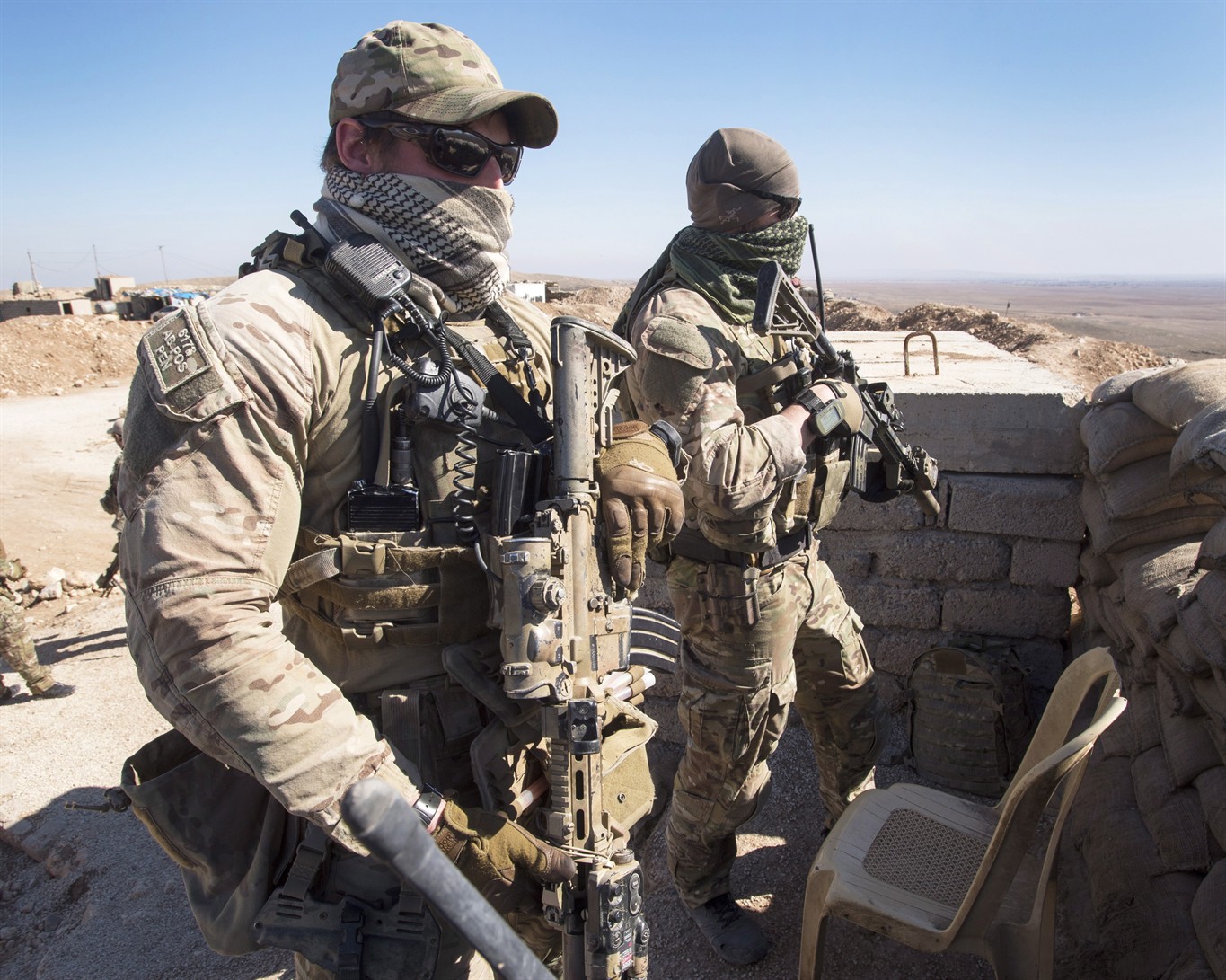Changing Horses in Mid-Stream
"I can't think of a different way to do this that doesn't create all the problems that have been there from the past. I think we've got it right [through the current efforts on the part of allied troops aiding the Iraqi military to restore parts of their country militarily captured by Islamic State for its caliphate]."
Canadian Brigadier-General David Anderson, Persian Gulf
"What's happening now with the strategy ... is we are enabling our [Iraqi] partners to defeat Daesh. We're also creating capacity for the longer term."
"And in trying to accelerate that or do it for them, we then start owning the problem and affect their ability to create their own capacity, which is the key to long-term stability in the region."
"We are closer than we think [to a final solution to ridding Iraq and Syria of Islamic State threats]. And that's the adult discussion that's going to play out there in the next little bit."
Canadian Brigadier-General Stephen Kelsey, Persian Gulf

That transition from a brutal dictatorship to the chaos of an occupation where the lead occupying force had no planned agenda for the transition of power and thought to administer the affairs of the country on its own, to guide it toward a Western-style democracy, led to its insistence that the dominant Shiites, the minority Sunnis and the Iraqi Kurdish populations share the executive powers of a new Iraqi administration. Concurrently, with the breakdown of forced restraints, sectarian conflict broke out with Sunnis and Shiite militias brutalizing one another's communities.

Canadian special forces look
over a Peshmerga observation post, Monday, February 20, 2017 in northern
Iraq. THE CANADIAN PRESS/Ryan Remiorz
The Sunni resentment, fuelled by the former elite Sunni military chiefs resulted in the formation of the Islamic State when it broke away from its initial al-Qaeda-linked affiliation. What the Canadian military views as a return to the old American method of taking control, brought on by President Donald Trump's expressed disgruntlement at the slow pace of defeating Islamic State, is concerning primarily because of its experience of failure. Just as in Afghanistan when the U.S. and NATO troops did the military heavy lifting against the Taliban until it occurred that training the Afghan military and police to look after their own affairs was the obvious, preferred option.
And this is precisely what is taking place today in Iraq, the training of both the regular Iraqi military which had previously been trained by the Americans, but whose reactive impulse on realizing that Islamic State was marching toward Iraq's second largest city, Mosul, was to desert their military barracks with all the high-tech U.S.-supplied military equipment, and leave the city, its inhabitants and its wealth, including the barracks and their military equipment to the invading Islamic State, as part of their emerging caliphate.
Now, the new American Commander-in-Chief, totally ignorant of the fine points of military strategy, let alone the prevailing atmosphere in the countries where American troops along with Canadian and European troops are training both the Iraqi military and the Peshmerga in the culture of advanced warfare, and the use of new defensive techniques and weaponry, the new option seems to be to return the failed in-a-hurry strategy of the past. To put more American boots on the ground and take the initiative away from the Iraqi military to look after the security of their own country.
This appears to be the go-ahead strategy of President Trump who has authorized the new U.S. Defense Secretary, James Mattis to travel to Iraq on a mission to plan for 'speeding up' the campaign. Thus to fulfill candidate Trump's presidential election criticism of the slow progress in reducing Islamic State to non-existence, promising he would bring in a new approach to defeat ISIL.
Labels: Canada, Conflict, Iraq, Islamic State, Mosul, Peshmerga, Trump, United States

<< Home